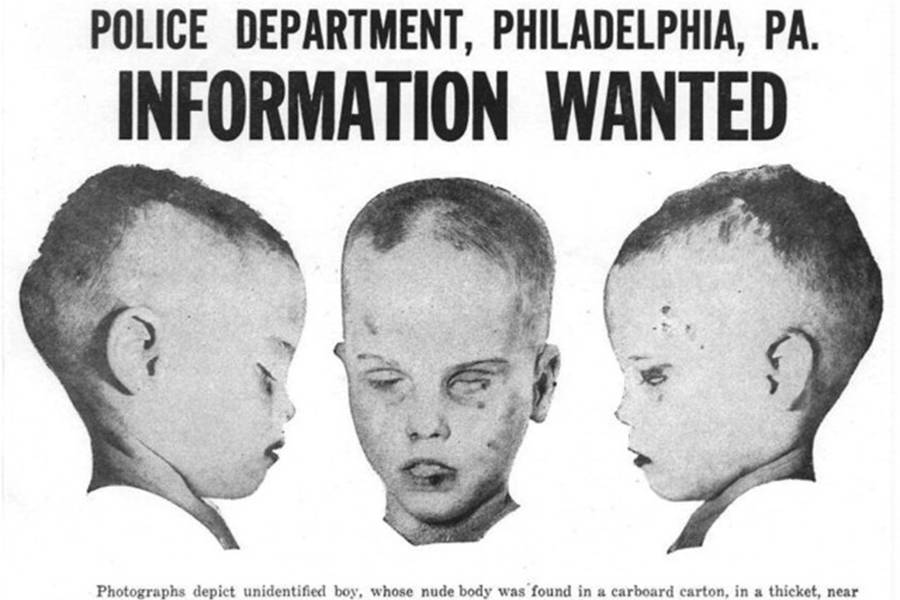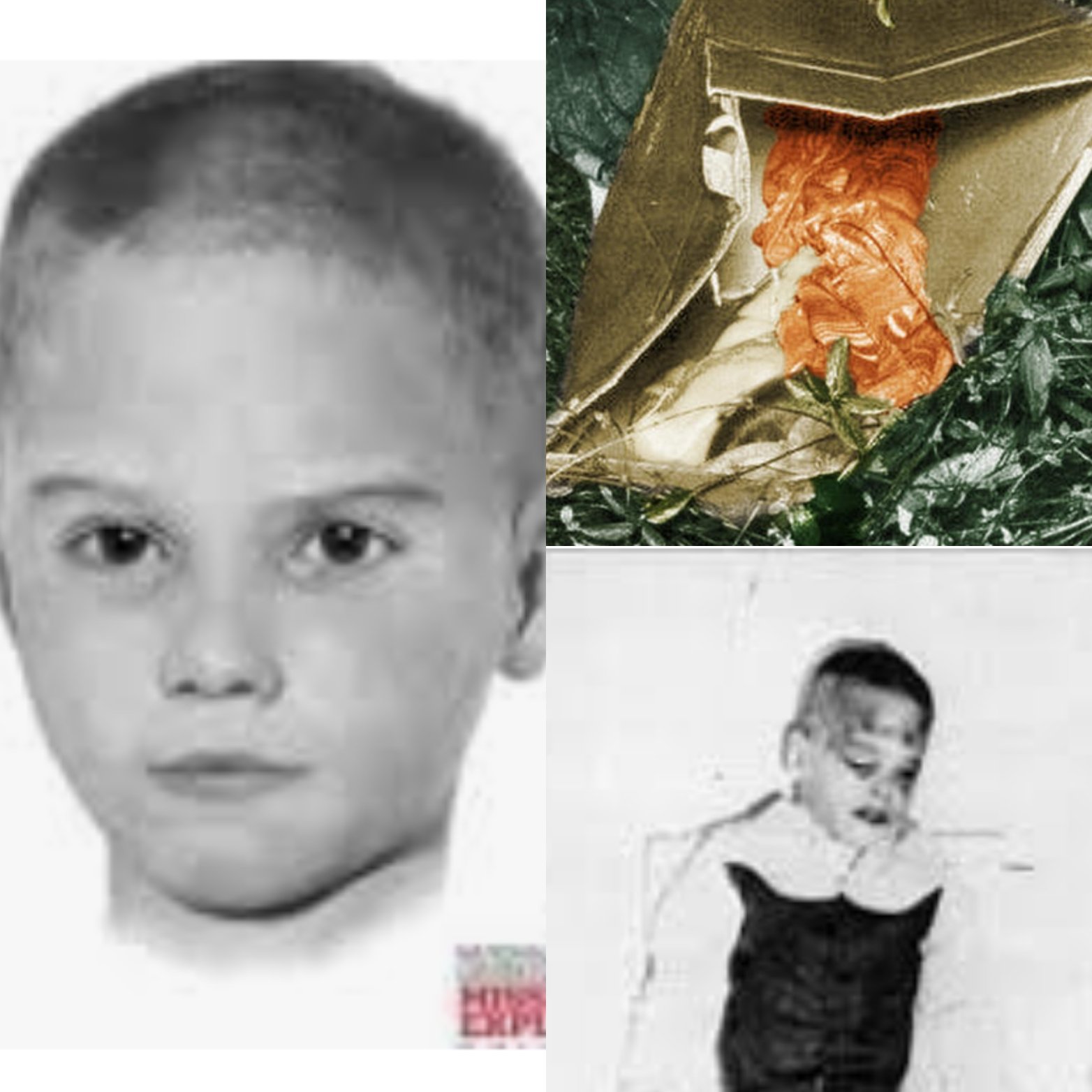There's a phrase, "the boy in the box," that, you know, just seems to carry a heavy weight. It brings to mind, in a way, the idea of a young person, a male human, whose story remains untold, a life cut short before it truly began to unfold. This simple collection of words, often heard in hushed tones, really makes us think about what it means to be a child, a young male, someone still in the process of becoming a man.
A boy, as we typically think of it, is a young male person, someone who hasn't quite reached their full size or grown into an adult. This word often describes a child or a teenager, a person who is, you know, still learning and changing. When we use this term, we're talking about someone from the moment they are born until they reach that stage of being fully grown. It’s a period of life marked by growth and discovery, a time when a person is just beginning to figure out their place in the world, or so it seems.
So, when we hear "the boy in the box," it’s not just any boy; it’s a specific, unnamed young male who represents a deep, sad mystery. This phrase, in some respects, points to a life that was, but whose details are lost to us. It prompts us to consider the meaning of a young life, especially one that has ended before its time, leaving behind only questions and a profound sense of sorrow. It’s a powerful image, really, that stays with you.
Table of Contents
- A Life Unseen - The Boy in the Box as a Symbol
- Who Is a Boy? A Look at the Age and Gender of The Boy in the Box
- What Does It Mean to Be a Young Male in the Context of The Boy in the Box?
- The Stages of a Young Person's Life and The Boy in the Box
- How Does Society View a Boy, and What Does That Tell Us About The Boy in the Box?
- The Power of a Simple Word When Describing The Boy in the Box
- Why Do We Call Him The Boy in the Box and Not Something Else?
- Remembering the Unnamed - A Final Thought on The Boy in the Box
A Life Unseen - The Boy in the Box as a Symbol
When we talk about "the boy in the box," we're speaking of a young male human, someone whose time on this earth was, you know, very brief. The term "boy" itself usually points to a child or a person who is still growing up, someone not yet an adult. This particular phrase has become a way to talk about a child whose life ended in a way that left many questions, a child who remained without a proper identity for a very long time. It’s a name, in a way, that acts as a placeholder for a life that was, but whose full story is still, perhaps, not entirely known. This namelessness, you know, makes the situation all the more poignant, a kind of collective sorrow for a little one lost.
The concept of a "boy" is pretty simple at its core: a male child from birth until he reaches the stage of being a man. This includes anyone under the age of eighteen, generally speaking. So, when we hear "the boy in the box," we picture a young person, a child really, someone who was not yet fully formed. It’s a way to describe a male who is still in the early years of his existence, before he has had the chance to experience much of what life has to offer. This description, you know, really emphasizes the youthfulness of the person involved, making the circumstances surrounding his discovery all the more tragic, a true heartbreaker.
This particular phrase, "the boy in the box," often brings about feelings of surprise or deep concern, almost like an exclamation, because it speaks to something so unexpected and sad. It highlights how the term "boy" can relate to someone's gender, their age, and the broader social situations they find themselves in. This young male, the one spoken of as "the boy in the box," represents a child who would have, you know, grown up to be a man, had circumstances been different. His situation makes us think about the path a young person takes, or in this case, the path that was taken from him, which is a very sad thing to consider, truly.
Who Is a Boy? A Look at the Age and Gender of The Boy in the Box
To understand "the boy in the box," we first have to think about what the word "boy" actually means. It refers to a young male human, someone who is, you know, either a child or a teenager. This word helps us describe a male person who is still in their developing years, before they have reached full maturity. The phrase "the boy in the box" therefore tells us, right away, that we are talking about a male who was not yet an adult, someone still very much in the early part of his life. This focus on his youth is, in some respects, a key part of the story, making it particularly heartbreaking.
Little boys, as we know, still have the physical form of a child. It's not until they go through puberty, that time of big changes in their bodies, that they start to mature and become more like a grown man. So, when we use the term "the boy in the box," we are referring to someone who was, you know, at that earlier stage of physical development. He was still a child, not yet someone whose body had begun the process of becoming adult. This simple fact, the idea of him being a child, makes the whole situation seem even more unfair, a really difficult thing to think about, actually.
The word "boy" can, you know, also describe a male of any age, especially when talking about a group of male friends, or even to show someone is brave or skilled. But in the case of "the boy in the box," the meaning is very specific. It points to a male child or a young person who is not an infant, but also not yet an adult. He was, apparently, not quite a baby, but still a young, growing person. This distinction is, in a way, important because it tells us something about his place in the world, or rather, his place outside of it, which is a very sad thought.
| Aspect of Identity | Description (Based on "My text" definitions of "Boy") |
|---|---|
| Gender | Male human |
| Age Group | Young; commonly a child or an adolescent; from birth to full growth; typically less than 18 years of age; not yet an adult |
| Life Stage | Still in the body of a child; prior to puberty (adolescence) when bodies start to mature |
| Social Context | A child who would grow up to be a man; a young person; distinct from an infant or adult |
| General Definition | A male child; a young male human; a male of any age (though in this context, specifically young) |
What Does It Mean to Be a Young Male in the Context of The Boy in the Box?
Being a young male, a "boy," carries with it a sense of newness, of a life just starting. The phrase "the boy in the box" truly captures this idea of a young person whose future was, you know, taken away. We often think of boys as being full of energy, ready to explore, and just beginning to understand the world around them. This particular boy, however, represents a profound loss of that potential, a life that was not allowed to unfold as it should have. It’s a very stark reminder, really, of how fragile young lives can be, which is a difficult truth to face.
The term "boy" also often brings to mind innocence and a certain vulnerability. A young male, still dependent on others, is typically seen as needing care and protection. When we talk about "the boy in the box," this aspect of vulnerability is, you know, very much at the forefront. It’s the image of a young person, a child, who was seemingly left without the care he deserved. This makes the situation all the more heartbreaking, as it goes against our natural inclination to protect the young and helpless. It's a deeply unsettling thought, honestly, that such a young life could end in such a way.
Moreover, the idea of a "boy" is tied to the path of growing into a man. It's about a future, about becoming someone. For "the boy in the box," that future was, you know, tragically cut short. He was still just a boy, someone who hadn't yet had the chance to experience the full journey of life, to become the person he was meant to be. This unfulfilled potential is, in some respects, what makes his story so enduringly sad. It’s a constant reminder of a life that never had the opportunity to fully blossom, which is a really painful thing to think about, actually.
The Stages of a Young Person's Life and The Boy in the Box
The journey from being a boy to becoming a man is a universal experience, marked by different stages of growth and change. A "boy" is defined as a male child from birth to full growth, and this includes someone who is, you know, especially less than 18 years of age. This definition helps us place "the boy in the box" within a specific phase of life, a time of development and innocence. He was at a point where his physical and emotional being was still forming, a stage where support and guidance are most needed. It’s a time, basically, when a person is just beginning to understand the world around them, a world that, in his case, proved to be very harsh.
We know that a male human is usually described as a man once he reaches adulthood. This means "the boy in the box" was, you know, not yet at that stage. He was still a child, someone whose body had not yet matured, someone who had not yet crossed that important threshold into being fully grown. This distinction is quite important, as it highlights the tender age of the person involved. It's a reminder that we are speaking of a young life, one that had not yet had the chance to experience the rites of passage that come with growing up. This fact, in some respects, adds to the profound sadness of his story, making it a very difficult topic to consider.
The journey from being a "little boy" to becoming a "young man" involves significant changes, both seen and unseen. Little boys still have the body of a child, and it's only when they reach puberty, a period of big physical shifts, that their bodies start to mature and they begin to look more like an adult. "The boy in the box" was, apparently, still in that earlier stage, with the body of a child. This means he was at a point in life where he was most vulnerable, a time when he needed the care and protection that, you know, he tragically did not receive. It’s a very sobering thought, really, to consider a child at such a tender age, left in such a way.
How Does Society View a Boy, and What Does That Tell Us About The Boy in the Box?
Society often looks at a "boy" with a mix of affection, expectation, and a sense of responsibility. We expect boys to grow, to learn, and to eventually contribute to the world. When we hear the phrase "the boy in the box," it clashes with these common views. It presents a picture of a young male whose potential was, you know, never realized, a life that ended before society could truly shape it or benefit from it. This contrast is, in a way, what makes the phrase so unsettling. It challenges our basic assumptions about how a young life should progress, making us question what went wrong, which is a very natural human response.
The term "boy" also carries with it cultural and social meanings. It can be used to refer to a young man, especially when talking about relationships, or even just a group of male friends. However, for "the boy in the box," these social connections are, you know, tragically absent. He was a young male human, but seemingly without the usual network of family or friends that define a young person's world. This isolation, in some respects, adds another layer of sadness to his story. It’s a reminder that he was, apparently, alone, without the bonds that typically surround a child, which is a really heartbreaking thought.
The very act of defining "boy" in dictionaries, as a male child or adolescent, distinguishes him from an infant or an adult. This formal description, you know, gives us a framework for understanding "the boy in the box" as a person who was past infancy but not yet fully grown. He was a young person, a child who would have, in time, become a man. The fact that his identity remained a mystery for so long speaks volumes about the breakdown of societal safety nets that should protect every child. It’s a profound question, really, of how such a young life could go unnoticed and unnamed for so long, a question that continues to resonate.
The Power of a Simple Word When Describing The Boy in the Box
The word "boy" might seem straightforward, but when applied to "the boy in the box," its simplicity gains a profound depth. It's a term that is, you know, easily understood across different languages and cultures, meaning a young male human. This universal understanding means that the tragedy of "the boy in the box" resonates widely, touching hearts far beyond any specific place or time. The word itself, in some respects, acts as a bridge, connecting us to the innocence and vulnerability of childhood, even when the specific details of a life are missing. It’s a powerful shorthand for a very human story, a story that, basically, speaks to everyone.
The term "boy" also carries an emotional punch. It can be used as an exclamation to show surprise, excitement, or even strong feeling, often in a casual way. For "the boy in the box," the word evokes a different kind of strong feeling: one of deep sorrow and a sense of injustice. It's a recognition that a young life was, you know, taken too soon, a life that deserved more. This emotional weight of the word "boy" helps us to connect with the human element of the story, even when the facts are sparse. It’s a word that, apparently, bypasses the need for complicated explanations, going straight to the heart of the matter, which is a testament to its power.
The way we use "boy" in sentences, how it's defined in dictionaries, and the examples given for its use, all build a picture of what a young male represents. For "the boy in the box," this linguistic framework helps us to grasp the magnitude of his situation. He was a male child, from birth to full growth, someone who was, you know, still developing. The very precision of the word "boy" in this context highlights the fact that a specific young life was lost, not just an abstract idea. It makes the unknown person very real to us, in a way, even without a name, which is a very effective use of language, truly.
Why Do We Call Him The Boy in the Box and Not Something Else?
The specific phrase "the boy in the box" is, you know, very striking, and it has stuck for a reason. It immediately tells us two key things: the age group of the person and a significant detail about his discovery. Calling him simply "a boy" emphasizes his youth and vulnerability, as a young male human, either a child or a teenager. This choice of words avoids more clinical or detached terms, making the story more personal and more affecting. It's a direct way of saying, in some respects


